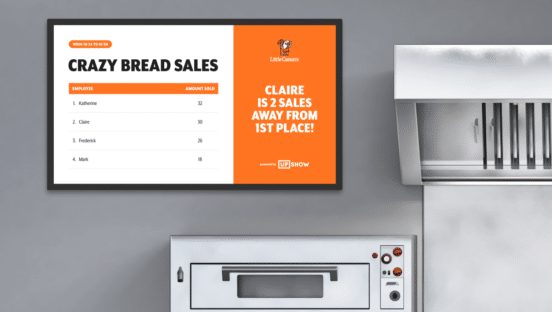Sponsored by Loomis.
In 2016, Cambridge Franchise Holdings operated 100 Burger King stores, many of which had been recently added to the company’s portfolio through acquisition. Each store brought its own bank accounts and cash-handling practices with it. Not only did this make reconciliation difficult for Cambridge’s finance team, but it also made it hard to know what the company was losing to internal theft.
“We didn’t have good visibility and processes because we were growing so quickly,” says Melanie Murray, who joined the company in December 2016 as treasurer. “We never even knew how much internal theft there was.”
One problem was that many of the stores had each cashier create a deposit slip and bag at the end of their shifts. However, bags and slips were not always filled out correctly or initialed, making it hard to tell who made which deposits. There could also be as many as five deposits a day from one store, and some managers wouldn’t take deposits to the bank daily as required by policy.
“We had multiple bank relationships in multiple states, and as we acquired stores and their banks, we saw instances where two stores were sharing a bank account,” Murray says. “Managers would also borrow another store’s pre-encoded deposit slips when they ran out of their own, which made it difficult to start the reconciliation process with so many different pieces and so many different websites to log into.”
Not only did all these inefficiencies create confusion for the financial team, but they also made it difficult to pinpoint where cash shortages originated.
Late in 2016, however, Cambridge Franchise Holdings implemented SafePoint by Loomis, a comprehensive cash management ecosystem that combines industry-leading service and IT support with cutting-edge SafePoint Titan smart safe technology. With SafePoint Titan smart safes, each cashier can deposit the cash from his or her drawer directly into the safe, and the system tracks not only how much is deposited, but who deposits the cash and when. This data is available in near real time via the Loomis Direct customer portal and provides the finance team the information needed to determine when and where shortages occur. It also allows them to follow up on any discrepancies.
Additionally, thanks to Loomis’ banking relationships, funds deposited in SafePoint Titan are provisionally credited to the business’s accounts, even though they are still in the safe. This gives restaurants access to money faster. Because the cash is picked up directly from the store, it eliminates the need for managers to leave the store with money.
Even though the company now operates 130 stores and continues to grow, consistent cash-handling practices and increased visibility into each store’s cash situation make it easy for the finance team to catch internal theft and increase profitability. For example, the company’s policy requires each individual to make his or her own deposits, so when the finance department noticed some people making several deposits, it was easy to pinpoint where theft was coming from.
“We never really understood the magnitude of what our losses were before Loomis,” Murray says. “But the SafePoint system has paid off because it’s created efficiency in my own process. Understanding where your cash is at all times makes it so much easier to plan for your cash flows, and if you spot any trends, you know quickly if someone is stealing.”
For more information on SafePoint by Loomis, visit www.loomis.us/safepoint













